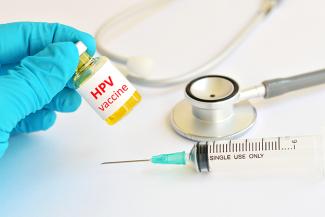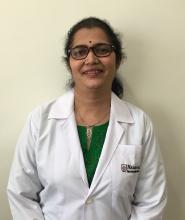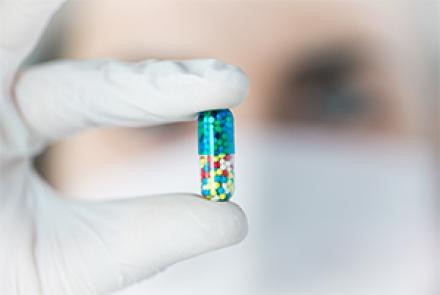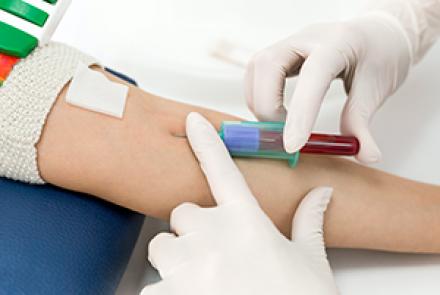
Dr Gayatri Deshpande, senior gynaecologist, cautions against infection of the Human papillomavirus (HPV) transmitted mainly through sexual contact that can cause painful and highly contagious genital warts resulting in a range of cancers in both men and women and advises safe sex to reduce risks.
What is Human Papillomavirus (HPV) infection and how do you get it?
This is an infection caused by Human Papillomavirus which is a DNA virus. One can catch this infection by sexual contacts which may be penetrative, vaginal sex, anal sex or less commonly oral sex.
How common are HPV infections?
This is one of the most common sexually transmitted infections in modern age. It has very high incidence is USA as well as in India.
What are the symptoms of HPV?
HPV virus has got several serotypes. HPV I and II can cause vulvo vaginal warts. Other serotypes, particularly HPV 16 and 18, are supposed to increase the incidence of pre-cancerous lesions of cervix and are proved to be responsible for cervical cancer in future.
(There are more than 100 types of HPV, of which at least 13 are cancer-causing. 70% of cervical cancers are caused by HPV 16 and HPV 18 types.)
What are the problems caused by HPV in men?
Men can develop genital warts as well as pre-cancerous lesions of the penis and rarely the squamous cell carcinoma of the penis.
How can HPV be treated?
HPV lesions or the warts can be treated with chemical or electro cauterisation. The lesions on the cervix, if diagnosed to be HPV positive, requires colposcopy and directed biopsy followed by cryocauterisation or electro cauterisation.
What is the HPV vaccine?
The HPV vaccine is a vaccine to prevent cervical cancer.
If HPV is spread through sex, why is the HPV vaccine recommended for children?
HPV vaccine is recommended before any sexual contact and the immunity level against the HPV will be better if the vaccine is given at the age of 10 years and above. In modern times, the puberty of girls happens earlier from 14 years to 10 years, hence, it is a wise idea to develop the immunity against HPV infection.
How many doses of the HPV vaccine are required and what is the cost?
Total 3 doses are required with the schedule of zero (first dose), followed by second dose after two months and the third dose after 6 months.
(HPV vaccines are sold under brand names Cervarix (approx cost Rs 2190 per dose) and Gardasil (approx. Rs 2,664 per dose.) Each woman would need three doses which would cost her Rs 6,500 to Rs 8,000 approximately.)
What percentage of women infected with HPV get cervical cancer?
The women who are infected with HPV after sexual contact don't necessarily get infection. 90% of them have immunity to prevent the future HPV infection. However, 10% can get infection due to lack of good immunity as well as multiple exposure to HPV virus. This may take weeks upto months before it can be detected in the cervical test of HPV DNA.
What are the advantages of the vaccine over Pap Smears?
Pap Smears is a screening test for the pre-cancerous and cancerous lesions of cervix. Vaccine is however a prophylactic injection to prevent the pre-cancerous and cancerous lesions of the cervix. Hence, taking the vaccine protects an individual against cervical cancer. However, the vaccine cannot replace the regular Pap Smear screening.
Must Read: Does HPV Vaccination prevent Cervical Cancer?
In India there is growing evidence that adolescents are becoming more sexually active. In this light, do you think the HPV vaccine should be more actively promoted by the authorities?
Yes. For obvious reasons! As the infection is only through the genital contact or penetrative sex, the young generation who are sexually active must protect themselves from catching the infection by using safe sex methods including condoms. If possible, they should be vaccinated at an early age to prevent the risk.
Has the percentage of teenage girls receiving the HPV vaccine gone up in the recent past?
Yes, it is due to increased awareness about the cervical pre-cancerous and cancerous lesions through media like newspapers, magazines and TV.
(In October 2017, Delhi became India’s first state to start vaccinating adolescent girls studying in Class VI in government schools against cervical cancer, with the free vaccination programme being expanded to include all 9-13 year olds in subsequent years.)
Is the HPV vaccine recommended for teenage boys just as it is for young girls?
At present, the randomised control trial has not recommended uniform vaccine administration for boys in India.
Do doctors in India advocate the HPV vaccines?
Most of the doctors including gynaecologist and paediatrics and family practitioners are aware of the advantages of the HPV vaccine. In metro cities particularly, the awareness is very high. However, it has not percolated in rural areas and remote places where the resources are lacking.
(Dr Gayatri Deshpande is senior Obstetrician and Gynecologist at Nanavati Hospital)

















